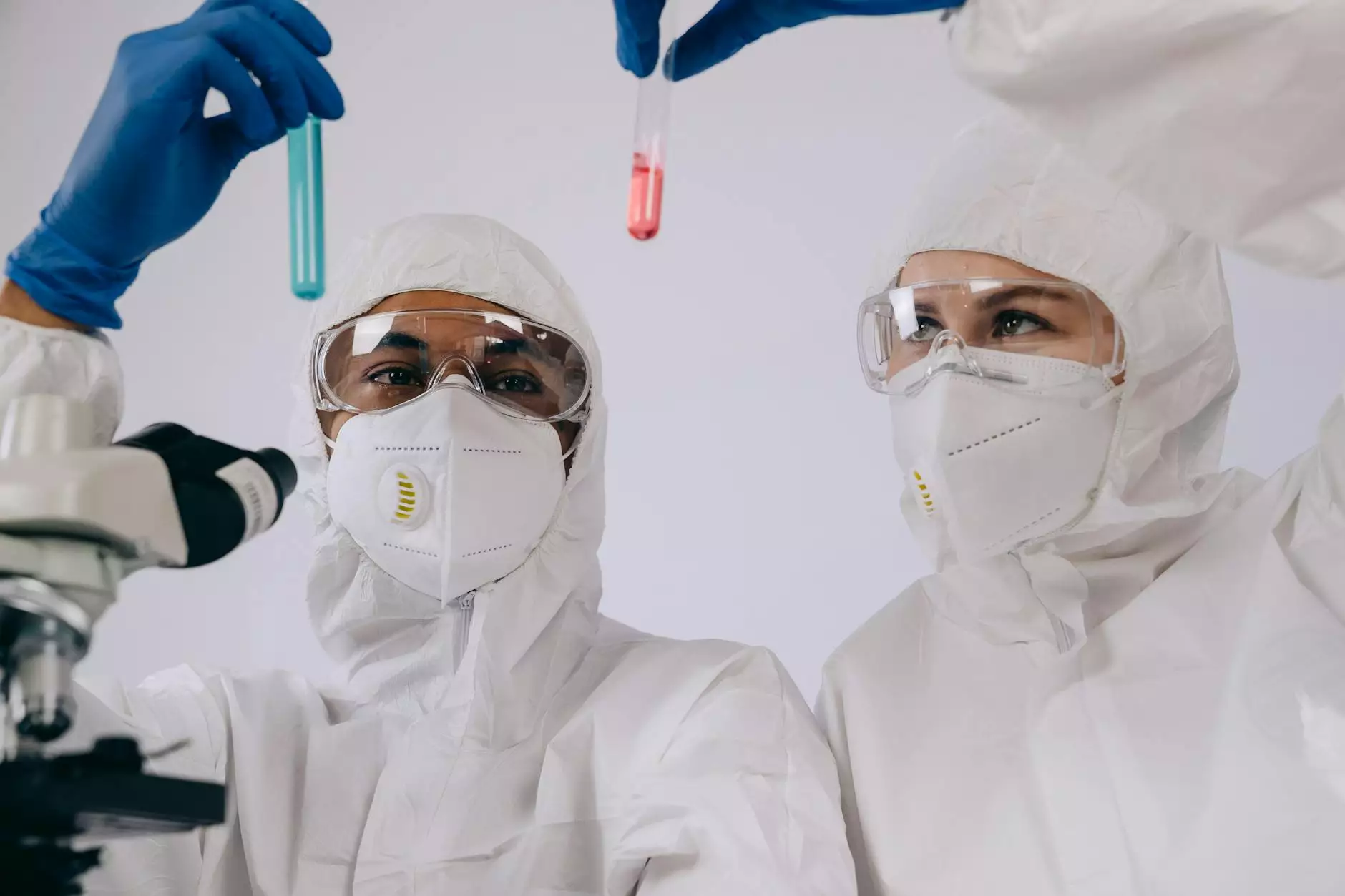Understanding Blood Test Clinics: Your Guide to Better Health

In today's fast-paced world, maintaining optimal health is more important than ever. One of the most effective ways to monitor your health is through regular blood tests. Occasional blood testing can unveil vital health information that may not be apparent through a physical examination alone. This article delves deep into the world of blood test clinics, their significance, services offered, and how they contribute to comprehensive healthcare.
What is a Blood Test Clinic?
A blood test clinic is a specialized facility that provides diagnostic testing services involving the analysis of blood samples. These clinics play a critical role in healthcare by facilitating early disease detection, monitoring health conditions, and providing essential information for treatment plans.
Importance of Blood Testing
Blood tests are powerful diagnostic tools that offer a multitude of benefits:
- Early Detection of Diseases: Many conditions, such as diabetes and kidney disease, can be detected through blood tests long before symptoms appear.
- Monitoring Existing Conditions: Regular testing can help in managing chronic conditions like hypertension and cholesterol levels.
- Assessing Overall Health: Comprehensive blood panels can reveal anomalies in organ function and overall health status.
- Informed Treatment Decisions: Blood test results equip healthcare providers with the necessary data to make precise treatment recommendations.
Services Offered at Blood Test Clinics
Blood test clinics generally provide a wide array of services to meet your diagnostic needs:
- Routine Blood Tests: These include complete blood counts (CBC), metabolic panels, lipid profiles, and more.
- Specialized Testing: Includes tests for specific diseases, hormone level evaluations, and vitamin deficiency tests.
- In-Home Blood Collection: Some clinics offer at-home visits for blood collection, ensuring convenience for patients who cannot travel.
- Consultation with Healthcare Professionals: Many clinics allow for consultations to discuss test results and recommend follow-up actions.
The Process of Getting a Blood Test
The steps involved in getting a blood test at a blood test clinic are relatively straightforward:
- Appointment Scheduling: Patients usually need to schedule an appointment, either online or via phone, depending on the clinic's policy.
- Pre-Test Preparation: Specific tests may require fasting or certain dietary restrictions; the clinic will provide guidance here.
- Sample Collection: A qualified healthcare professional will perform a safe blood draw from a vein in the arm.
- Laboratory Analysis: The collected blood sample is then sent to a laboratory for analysis, where various tests will be conducted.
- Results and Consultation: Once the results are available, patients can return to the clinic for a follow-up discussion with a healthcare provider.
Choosing the Right Blood Test Clinic
Selecting the right blood test clinic is crucial for accurate and timely results. Here are some key factors to consider:
- Accreditation: Ensure the clinic is accredited by relevant health authorities to guarantee quality and reliability.
- Technology and Equipment: Modern laboratories should be equipped with the latest technology for accurate testing.
- Qualified Staff: Look for clinics employing certified phlebotomists and qualified lab technicians.
- Patient Reviews: Research patient reviews and testimonials to gauge the clinic's reputation.
- Convenience: Consider location, operating hours, and if they offer additional services like at-home testing.
Benefits of Regular Blood Testing
Committing to regular blood tests can profoundly influence your health outcomes. Below are several benefits of this proactive approach:
- Preventive Care: Regular screenings can catch potential health issues before they become serious, facilitating timely intervention.
- Health Tracking: Monitoring changes in blood composition helps provide clarity regarding your body’s functions over time.
- Personalized Health Insights: Blood tests can provide insight into individual health markers, helping create tailored wellness plans.
- Enhanced Communication with Healthcare Providers: Sharing regular results fosters a stronger partnership with your health provider.
Innovations in Blood Testing
The field of blood testing is continually evolving, with advancements making testing more efficient and accessible. Some notable innovations include:
- Telemedicine Integration: Virtual consultations are becoming common, allowing patients to discuss results without a physical visit.
- At-Home Testing Kits: Many clinics now provide kits for at-home testing, catering to patient convenience and comfort.
- Point-of-Care Testing: New technologies enable rapid results, often within minutes, enhancing patient care capabilities.
The Role of Blood Test Clinics in Public Health
Blood test clinics contribute significantly to public health by:
- Supporting Disease Surveillance: Regular testing facilitates the monitoring of epidemiological patterns of diseases.
- Promoting Preventive Health: By educating the public on the importance of regular testing, clinics empower individuals to take charge of their health.
- Collaborating with Healthcare Systems: Clinics often provide vital data to healthcare agencies, aiding in research and public health strategies.
Insurance and Blood Testing Costs
Understanding the financial aspects of blood testing is crucial for prospective patients. Here’s what to consider regarding costs and insurance:
- Insurance Coverage: Many insurance plans cover routine blood testing; check with your provider for specific details.
- Out-of-Pocket Costs: Investigate the out-of-pocket costs for uninsured patients. Some clinics offer competitive pricing structures.
- Payment Plans: Many blood test clinics provide flexible payment options or sliding scale fees for low-income patients.
Conclusion
Choosing a blood test clinic and committing to regular blood testing can significantly impact your health and wellness. As we've explored throughout this article, the importance of these clinics extends far beyond convenience; they are pivotal in disease prevention, health monitoring, and enhancing overall quality of life. Taking advantage of the services offered by blood test clinics not only allows for informed health decisions but also fosters a proactive approach to personal health management. Remember, your health is your most valuable asset, and understanding it through blood testing is a powerful step towards a healthier future.



